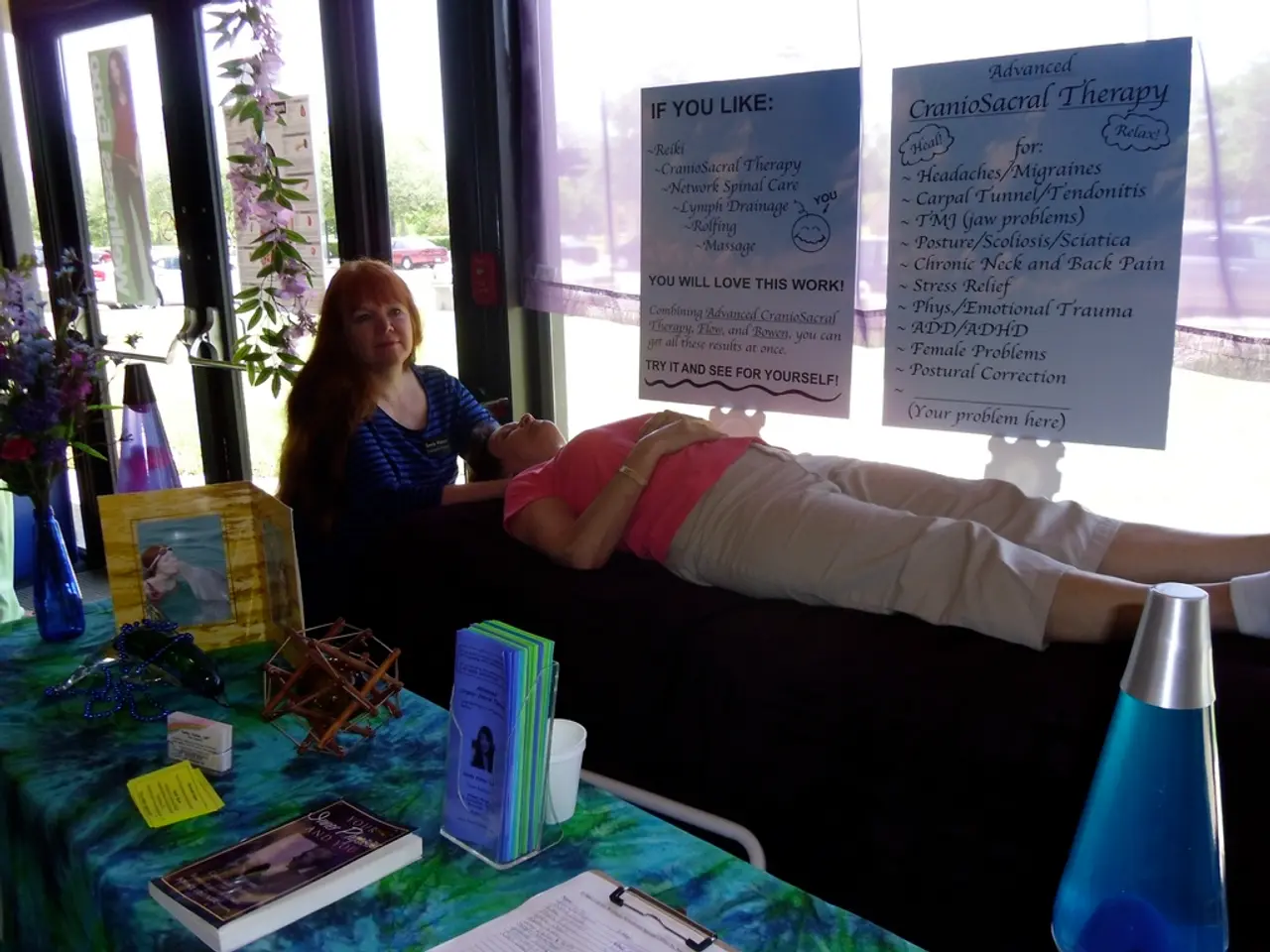Struggling with Depression? Here are 7 Actions Using Body Language to Help Combat It
Body language plays a significant role in influencing our emotional states and signaling positivity both internally and externally. By adopting confident, open, and upright postures, we can help combat depression and improve our mood.
Mindful Body Movements
A combination known as the "slump buster" can help rewire our system and kick "body language depression" vibes to the curb. It includes standing up straight, rolling our shoulders back, and marching around our space for two minutes. This simple exercise can be done daily, and after a week, one may notice that their shoulders don't cave as fast, and their energy is less meh.
Pairing the "slump buster" with a mirror check can further help. Staring ourselves down, sticking out our tongue, and flashing the goofiest grin we can muster for 30 seconds can break negative thought patterns and boost our mood.
Breathing Exercises
Breathing exercises also play a crucial role in combating depression. Practices like box breathing (inhale-hold-exhale-hold for four counts each), 4-7-8 breathing, and the physiological sigh connect the mind and body, helping regulate emotion and reduce anxiety and stress.
Somatic Techniques
Somatic techniques, such as mindful walking, gentle stretching or yoga, shaking out tension like animals do, progressive muscle relaxation, and even dancing, can help break negative thought patterns and provide relief from stress.
Body Awareness and Expression
Using techniques like the "butterfly hug" (crossing arms over the chest and tapping shoulders alternately) can soothe anxiety and support emotional regulation.
Meditation and Exercise
Meditation can help combat depression by focusing our attention on the body and helping us come back to the present moment. Exercise can help combat depression by pumping endorphins, making us feel happy and relaxed, decreasing anxiety, increasing concentration, focus, and cognitive abilities, and improving sleep.
Understanding Depression
Depression is a mood disorder that causes persistent feelings of sadness and loss of interest, affecting how we feel, think, and behave. It can lead to a variety of emotional and physical problems. The body of someone who is depressed experiences a drop in serotonin and dopamine levels, chemicals that help maintain mood balance.
Adopting these body-language-related methods can tap into the bidirectional connection between physical states and emotional well-being, where improving body signals can lead to improved mood and reduced depressive symptoms. Movement and exercise boost brain function and emotional regulation through neurotransmitter release, and combined with mindfulness and social connection, they form a comprehensive approach to combat depression.
[1] Psychology Today. (2021). Body Language: The Power of Nonverbal Communication. Retrieved from https://www.psychologytoday.com/us/blog/the-power-now/201210/body-language-the-power-nonverbal-communication
[2] HuffPost. (2019). 9 Simple Body Language Tricks That Can Help You Feel Happier. Retrieved from https://www.huffpost.com/entry/body-language-tricks-happier_n_5c608743e4b0e99bb25008d0
[3] Mayo Clinic. (2021). Depression. Retrieved from https://www.mayoclinic.org/diseases-conditions/depression/symptoms-causes/syc-20364118
[4] Harvard Health Publishing. (2021). Exercise as a treatment for depression. Retrieved from https://www.health.harvard.edu/staying-healthy/exercise-as-a-treatment-for-depression
- Engaging in the "slump buster" exercise and examining ourselves in a mirror, as well as performing breathing exercises, can help improve our mental health, combat depression, and boost our mood.
- Practicing somatic techniques like mindful walking, gentle stretching, and progressive muscle relaxation can aid in breaking negative thought patterns, providing relief from stress, and supporting emotional regulation.




